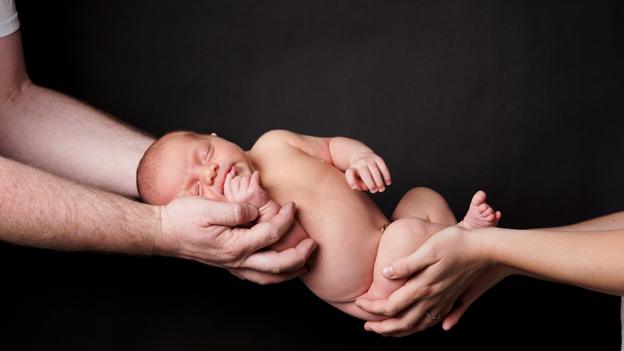Dustin Lance Black: 'Our son should know his egg donor'
- Published
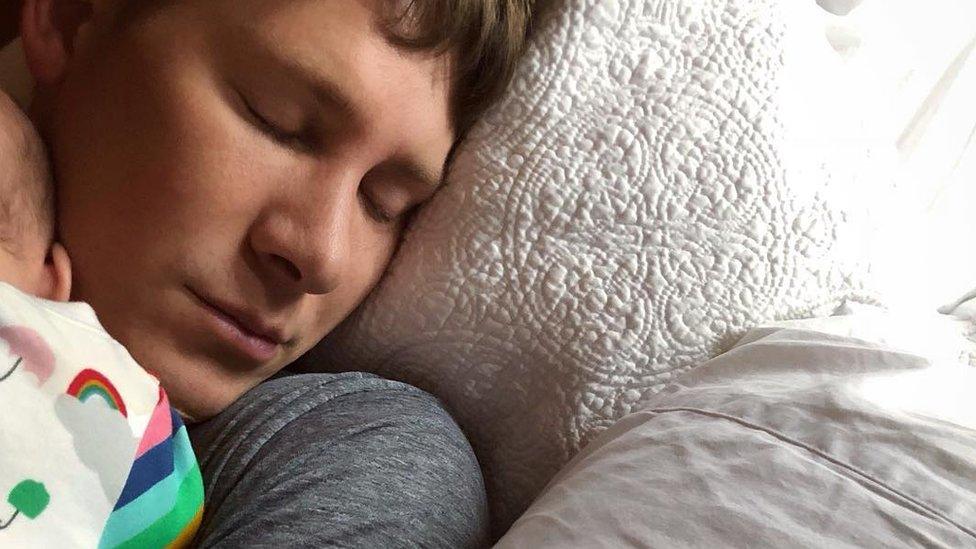
Dustin Lance Black explored the subject of surrogacy for BBC Radio 5 live
Dustin Lance Black and his husband, Olympic diver Tom Daley, became parents for the first time in June 2018, having their son Robbie Ray through surrogacy.
Mr Black, an Oscar-winning screenwriter, and Mr Daley used a gestational surrogate in California, and a different egg donor, to have Robbie Ray.
"The greatest gift I've ever had in my entire life is this son that I'm holding and I didn't do it alone," Mr Black told a specially recorded podcast for BBC Radio 5 Live.
"There are two women out there who made this possible."
In the lead-up to Robbie Ray's birth, and after he'd arrived, Mr Black investigated the personal, scientific, financial and legal aspects of surrogacy.
He said the process made him rethink the couple's relationship with their egg donor, adding that he and Mr Daley were now planning to take Robbie Ray to meet her next year.
'Major sticking point'
It was through conversations with campaigners such as Jessica Kern, who was born through surrogacy, that led Mr Black to re-examine how important their egg donor might be to their son when he grows up.
Ms Kern, who lives in Virginia, in the US, wasn't told that she was born via a surrogate but found out through medical records when she was a teenager.
"It's kind of a major sticking point for me that those of us conceived via these technologies, we don't have the rights to know our own story," she said.
"You're going to be bringing a kid into the world who is donor conceived… you don't have any guarantee that your child is going to feel positive about it at the end of the day.
"It's a roll of the dice... I just wish you guys luck," she told Mr Black.
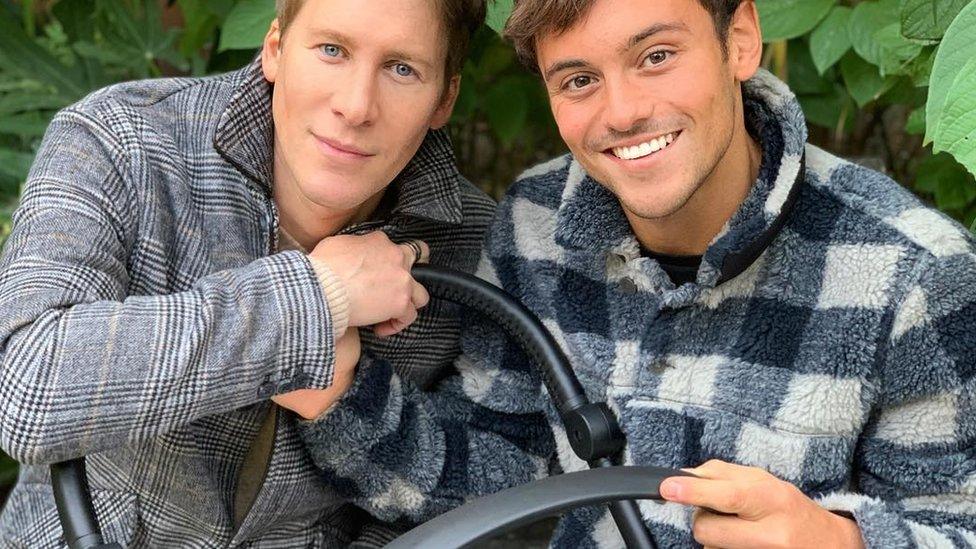
Dustin Lance Black and Tom Daley plan to take their son to meet their egg donor
Mr Black said he believed it was important for people to understand the difference between gestational and traditional surrogacy, where the surrogate's own eggs are used.
"That first concern you heard so often... 'How could you rip this child out of its mother's arms?' - which of course is something Tom and I would never want to do - that goes away when people start to understand the science."
Getting ready
Mr Black, who grew up as a Mormon, said that as a child he had thought he'd never have a family of his own, because of his sexuality.
"I wondered at six years old if I'd ever have that, because at six years old I also realised for the first time that I was gay."
Part-way through the recording of the podcast, the couple flew from their home in the UK to California in preparation for the arrival of Robbie Ray.
Mr Black revealed how the pair went shopping to get ready for the baby. Browsing the aisles, he said, the realisation he was about to become a father had suddenly struck him.
"And now here I am, in Babies R Us, shopping for nappies, and wipes, and a car seat. And it's happening. It's happening.
"Thanks to a lot of hearts changing, laws changing, and now thanks to science, and the great generosity of a surrogate, and an egg donor. Here I am, about to be a dad."
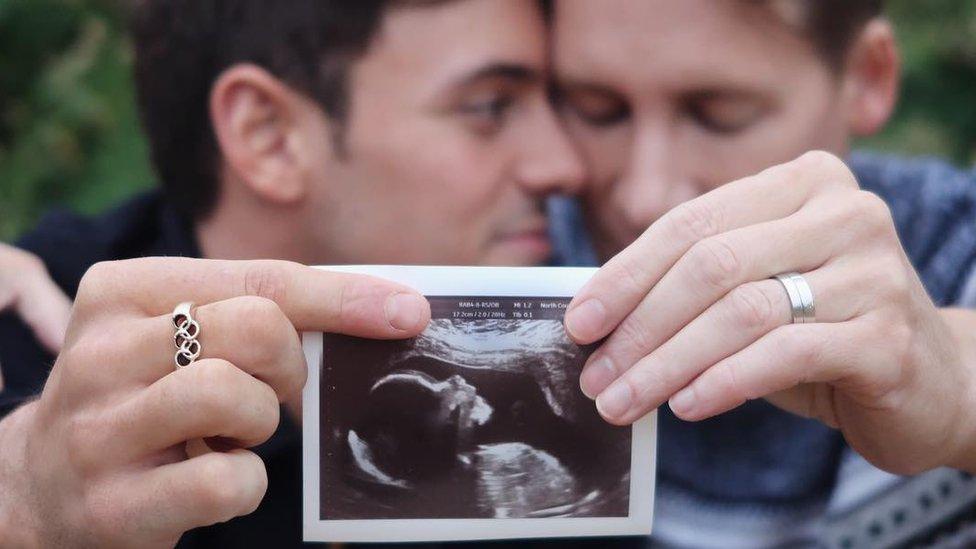
Mr Black and Mr Daley shared the news they were expecting a baby on Valentine's Day 2018
The birth
Mr Black described the moment their surrogate contacted them, at 15:00 local time, saying: "Boys, get to the hospital!"
He said they had raced through LA rush-hour traffic for the birth. He said they had decided in advance that he would cut the cord and Mr Daley would hold the baby first - "skin-to-skin, to start creating that bond".
The podcast highlights many differences between UK and US surrogacy law, including that in California intended parents can be made the legal parents before the birth.
"When we walked out of that hospital, we had a birth certificate with our names on it that said: 'Father one and father two, Tom Daley and Dustin Lance Black'. And we knew our son was not only ours in our hearts but also legally and protected that way."
Due to UK surrogacy laws, which are currently under review, Mr Black and Mr Daley are now in a lengthy legal process to become their son's legal parents in the UK, a process Mr Black said "breaks your heart".
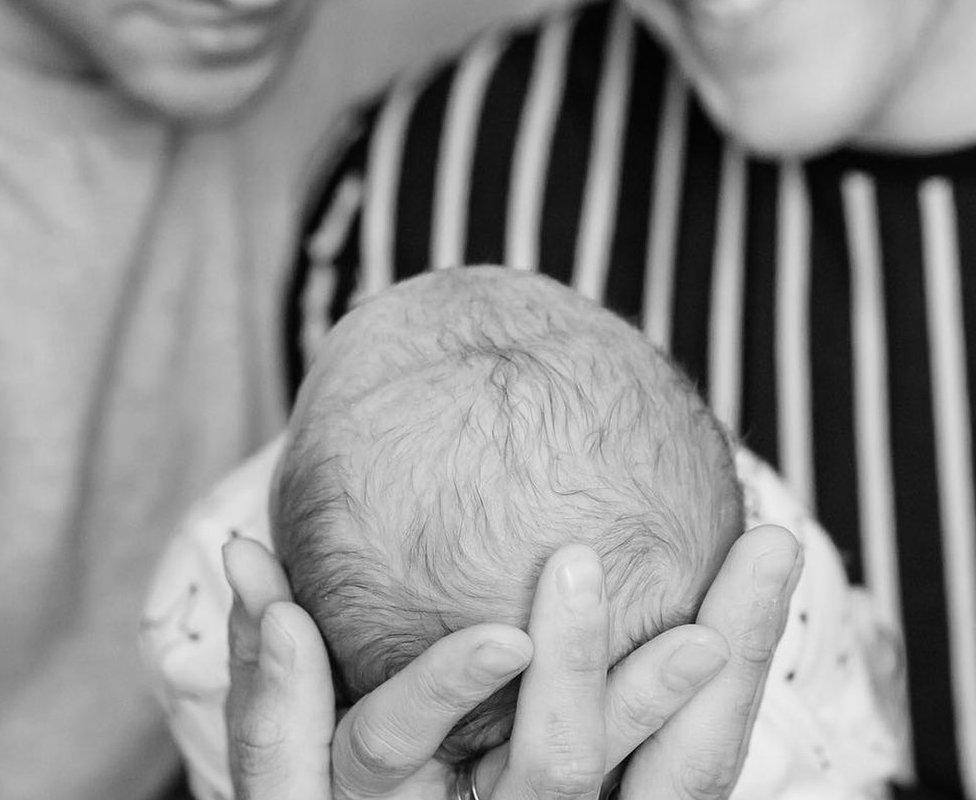
The couple shared the news of the baby's arrival on social media
The egg donor
Weeks into their new life as parents, Mr Black opened up about the couple's determination to get it right when making decisions about their son's relationship with the women who helped bring him into the world.
Mr Black said his eyes had been opened to "the potential benefits of having an even closer relationship with our egg donor" and he had now started to see surrogacy through the eyes of the children born via this method.
He said they wanted their son to be proud of how he had been born and, having investigated surrogacy, he now believed the best way to do that "is to open the door, to open the windows, and let the light and the truth of who he is and how he came into our family be as evident as possible".
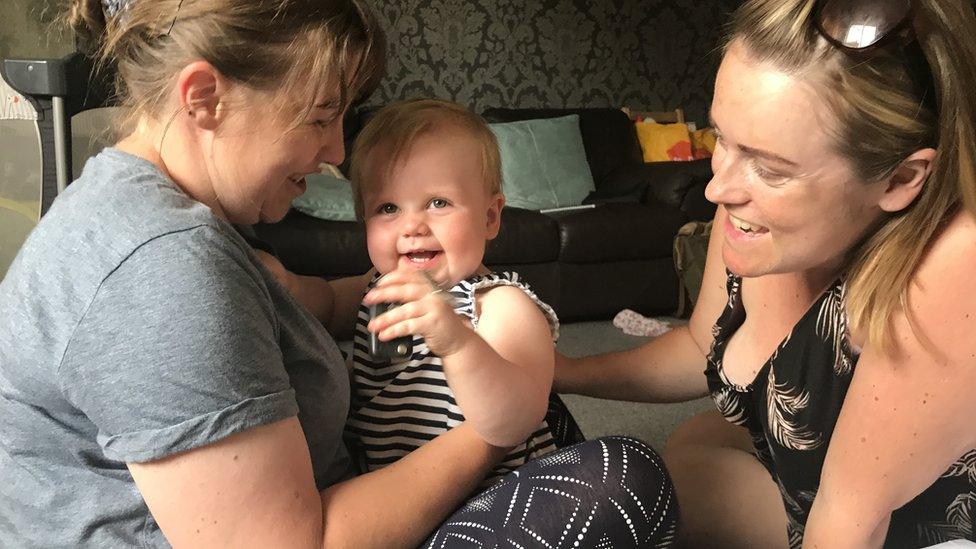
Helen Greenwood with her baby and her surrogate, Caz
Helen and Caz
As part of the podcast, Mr Black also met Helen Greenwood, whose toddler was born through traditional surrogacy, via surrogate Caz, in 2017.
Helen, from the north-west of England, said she and her husband were planning to be open with their daughter about how she had been conceived and born, presenting it as something normal.
"She's going to meet other children who were born through surrogacy, she's going to meet other surrogates and their families."
And she said, like Mr Black, she hoped it was something her daughter would feel "proud of" when she was older.
Click here to subscribe to BBC Radio 5 Live's podcast Surrogacy: A Family Frontier, on BBC Sounds.
- Published4 December 2018
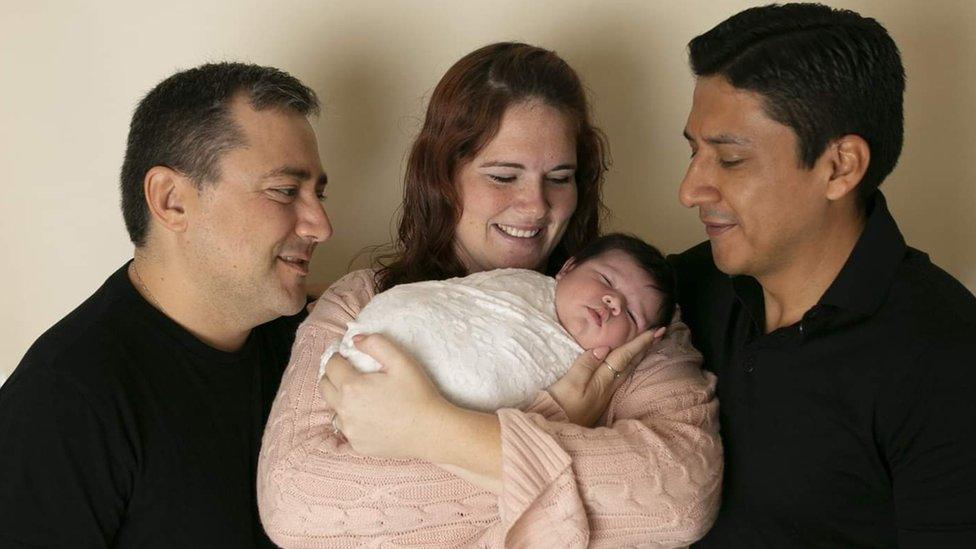
- Published21 August 2014
